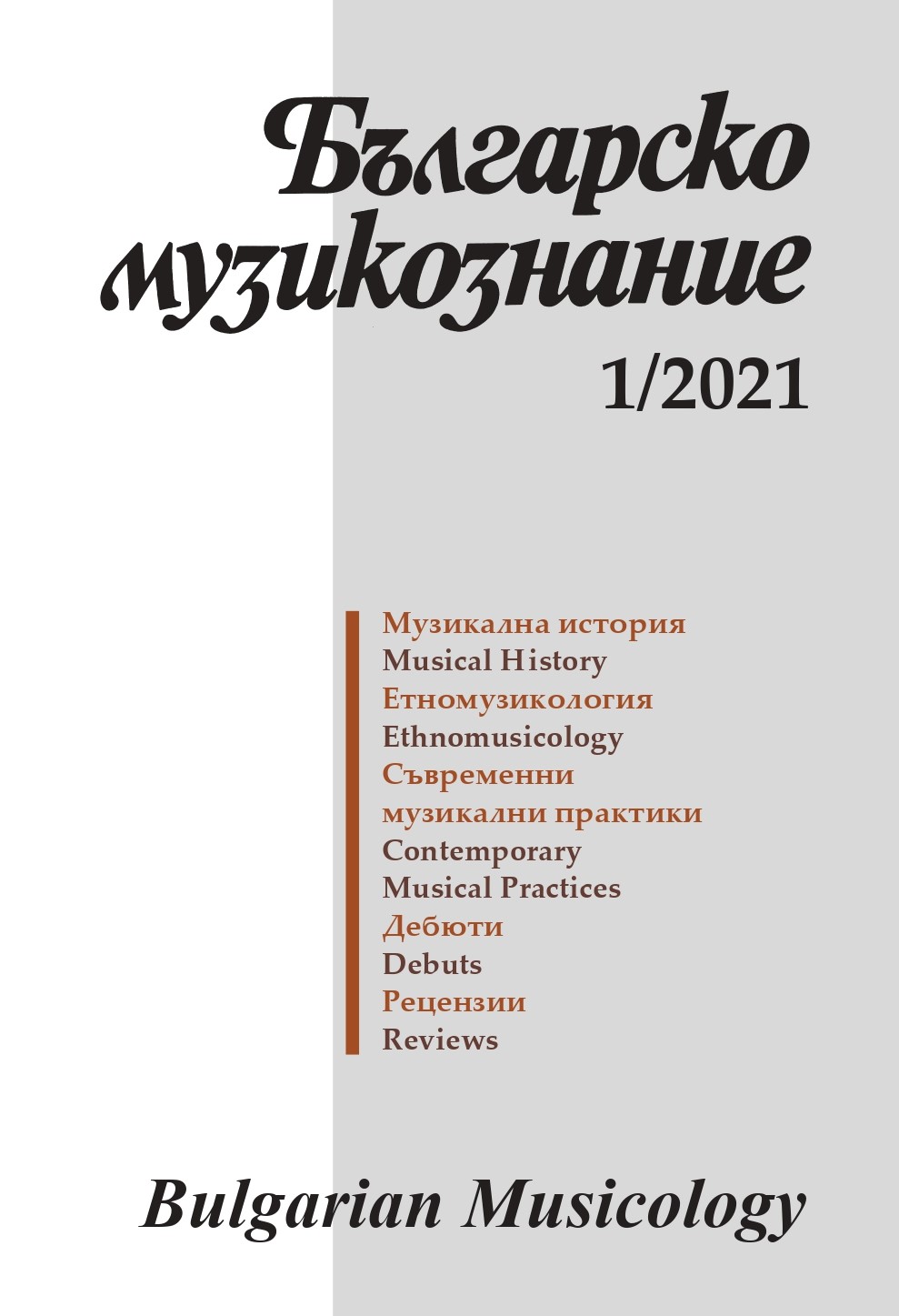Българска музика извън българските земи: молдавски музикални ръкописи
Bulgarian Music outside Bulgarian Lands: Moldavian Musical Manuscripts
Author(s): Svetlana KujumdzievaSubject(s): Fine Arts / Performing Arts, Music, History of Art
Published by: Институт за изследване на изкуствата, Българска академия на науките
Summary/Abstract: The study discusses the Moldavian musical manuscripts of the sixteenth century from the Putna music school in North-Eastern Romania. The new findings of Bulgarian scholars are presented. Two manuscripts are in the focus – the famous Evstatie’s book from 1511 and the manuscript 816 from the library of the Church Historical and Archival Institute at the Bulgarian Patriarchate in Sofia from the third quarter of the sixteenth century, identified as belonging to the Putna music school. It is stressed that the Moldavian music manuscripts are documents of the most complete adoption of the late-Byzantine (known also as “Koukouzelian”) musical system in Slavic in its Bulgarian redaction according to the new redaction of the Jerusalem Typikon of the fourteenth century. The activity of hieromonk Evstatie, the most prominent representative of the Putna music school, is discussed. Two important stichera that are included in his books are considered – for St. John the New of Suchava and for St. Petka of Epivat. It is established that the text of the sticheron for St. John was written by Gregory Tsamblak. The latter wrote an entire office for St. John the New in the beginning of the fifteenth century when he was a presbyter of the Moldavian Church. The sticheron for St. Petka turns out to be the first fully notated sticheron for the saint stemming from the Orthodox Balkans. It is argued that Evstatie was the author of the music of both stichera. In conclusion is stressed that one of the major tasks being accomplished in Putna was to preserve the Orthodox memory in the condition of foreign religious domination in the Balkans. The repertory performed there was notated including the music for particularly esteem saints that were praised in the Orthodox countries where the Slavic language was used. The study of this repertory allows us to reveal the creative power of memorable personalities and events that have become an example of inspiration for future generations.
Journal: Българско музикознание
- Issue Year: 2021
- Issue No: 1
- Page Range: 3-30
- Page Count: 28
- Language: Bulgarian
- Content File-PDF

